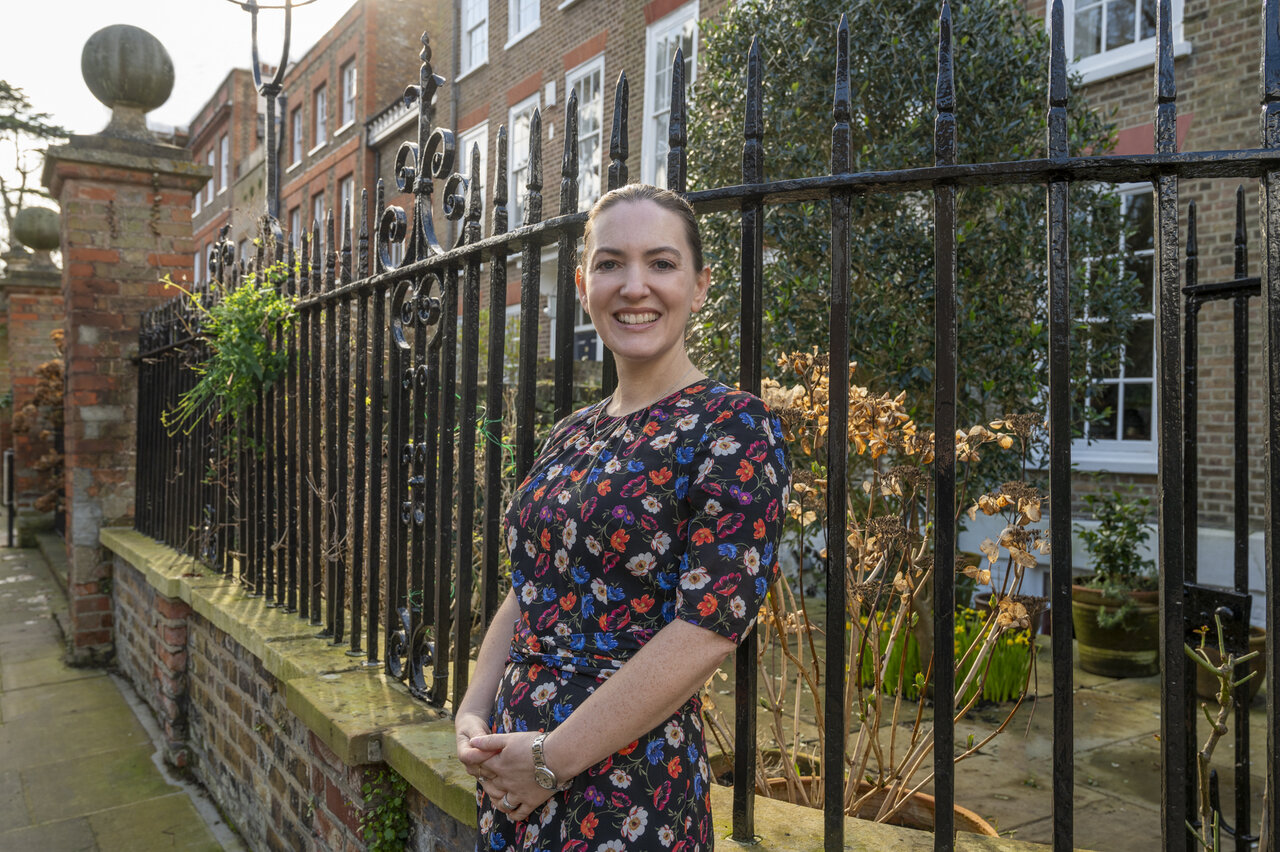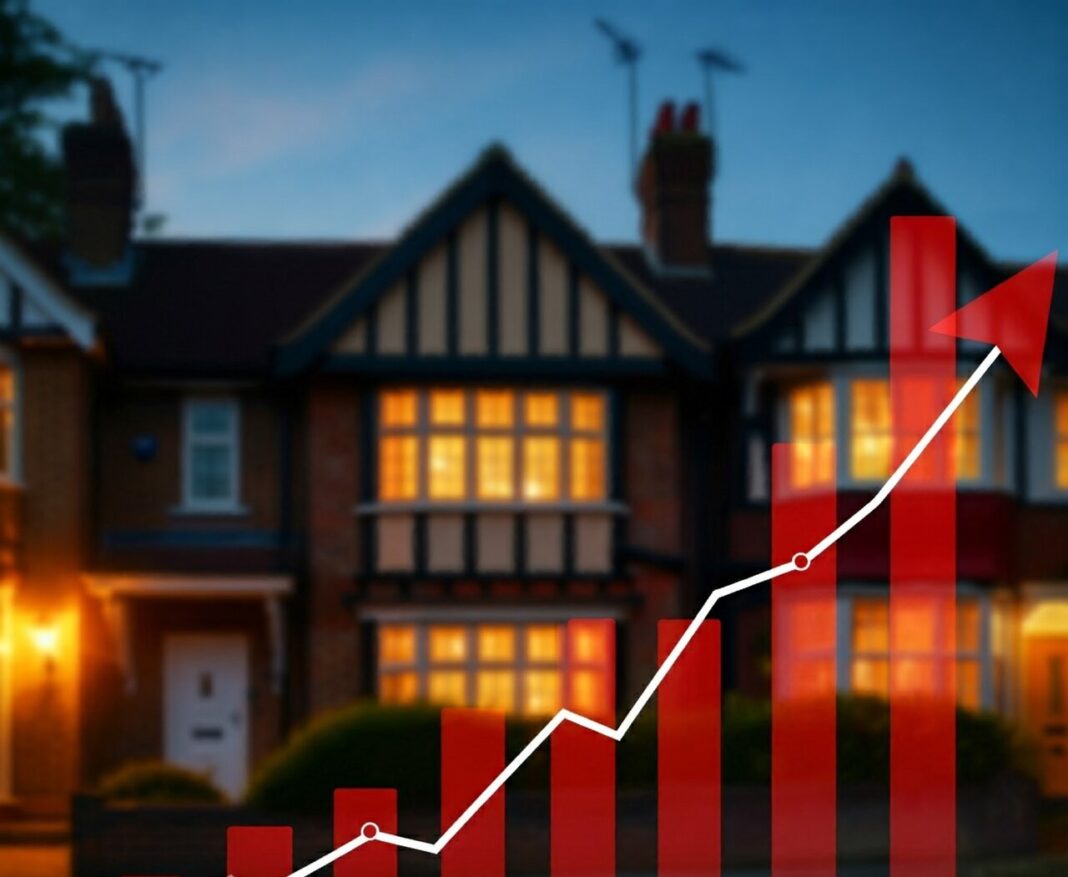House prices increased by +0.3% in September and year-on-year prices are up +4.7%, still the strongest rate since November 2022, latest data from Halifax reveals today.
According to Halifax a typical property now costs £293,399 (compared to £292,540 in August), the highest since June 2022.
Amanda Bryden, Head of Mortgages at Halifax, says: “UK house prices climbed for the third month in a row in September, with a slight increase of +0.3%, or £859 in cash terms.
“Annual growth edged up to +4.7%, the highest rate since November 2022. This brings the average property price up to £293,399, just shy of the record high of £293,507 set in June 2022.”
ALL ABOUT CONTEXT

But Bryden adds: “It’s essential to view these recent gains in context. While the typical property value has risen by around £13,000 over the past year, this increase is largely a recovery of the ground lost over the previous 12 months. Looking back two years, prices have increased by just +0.4% (£1,202).
“Market conditions have steadily improved over the summer and into early autumn. Mortgage affordability has been easing thanks to strong wage growth and falling interest rates. This has boosted confidence among potential buyers, with the number of mortgages agreed up over 40% in the last year and now at their highest level since July 2022.
“While improved mortgage affordability should continue to support buyer activity – boosted by anticipated further cuts to interest rates – housing costs remain a challenge for many. As a result we expect property price growth over the rest of this year and into next to remain modest.”
NATIONS AND REGIONS
Northern Ireland continues to record the strongest property price growth of any nation or region in the UK, rising by +9.7% on an annual basis in September. The average price of a property in Northern Ireland is now £203,593.
House prices in Wales also recorded strong growth, up +4.4%, compared to the previous year, with properties now costing an average of £224,119.
Scotland saw a more modest rise in house prices, where a typical property now costs £205,718, +2.1% more than the year before.
The North West once again recorded the strongest house price growth of any region in England, up by +5.1% over the last year, to sit at £234,355.
London continues to have the most expensive property prices in the UK, now averaging £539,238, up +2.6% compared to last year. This is still some way below the capital’s peak property price of £552,592 set in August 2022.
POSITIVE OUTLOOK

Guy Gittins, Chief Executive of Foxtons, says: “A fourth consecutive month of positive growth demonstrates the current strength of the UK property market and now that the dust has settled on last week’s Autumn Budget, the outlook continues to be very positive.
“While homebuyers were understandably disappointed about the lack of a stamp duty relief extension last week, the vast majority have already factored this increased cost into their plans for 2025 and those currently looking to purchase still have time to complete before the deadline at the end of March next year.
“As a result, we can expect the heightened level of market activity seen this year to continue, with momentum strengthening as we head into 2025, further elevated by forecast interest rate reductions, the first of which could be seen as soon as today.”
UK’S APPEAL COULD GROW

Tom Bill, head of UK residential research at Knight Frank, adds: “The interest rate landscape has become more adverse than a fortnight ago, which will increase downwards pressure on house prices in the short-term.
“The Budget signalled higher levels of public borrowing and swap rates have jumped since the start of last month.
“The impact of a Trump presidency on UK interest rates is harder to predict. While the new President’s economic plans may prove inflationary, the UK’s appeal among investors could grow, potentially putting downwards pressure on rates in the longer term.
“For now, anyone deciding whether to fix for two or five years must consider whether they think Labour’s revenue-raising plans will work or more rate turbulence lies ahead during this Parliament.”
PAUSE BUTTON

Jeremy Leaf, north London estate agent and a former RICS residential chairman, says: “Worries about the Budget did create some uncertainty among our buyers and sellers but many pressed the pause, rather than the stop, button.
“The underlying feeling is that interest rates will remain fairly stable or even drop a bit over coming months, which has underpinned confidence and activity.
“The increases in stamp duty for second homebuyers and landlords have resulted in some renegotiation of previously-agreed prices. But any small dip has been outweighed by new interest from first-time buyers keen to take advantage of competitively-priced property becoming available and their own stamp duty changes next spring.”
BUYER CONFIDENCE BOOSTED

Amy Reynolds, head of sales at Richmond estate agency Antony Roberts, says: “The Bank of England rate reduction in August boosted buyer confidence, leading to an uptick in applicant registrations, viewings, and offers, contributing positively to our fourth quarter revenue. A further rate drop today would likely encourage more vendors to sell and buy, encouraging people off the fence.
“With the Budget behind us, we now have greater certainty. We are cautiously optimistic but concerned about the future stamp duty rate change for first-time buyers.
“Do they realise how long it takes to complete a purchase? If the Bank does cut rates today and the mortgage market reacts positively, first-time buyers should seriously consider making their move to agree a purchase before Christmas, as delays could prove costly.”
CONTINUING TO CLIMB

Marc von Grundherr, Director of Benham and Reeves, says: “A degree of property market hesitation is always to be expected in the run up to a major economic event such as the Autumn Budget.
“Despite this, house prices have continued to climb, albeit at a slower rate, but this demonstrates the intent that is currently being shown on both the side of buyers and sellers in the current market.”
STRONG END TO 2024

Verona Frankish, Chief Executive of Yopa, adds: “Although the market may have taken a brief pause for breath ahead of the Autumn Budget, we expect to see activity increase considerably between now and the end of March next year, as homebuyers look to make their move before stamp duty relief reverts back to previous thresholds.
“This means we’re in for a very strong end to 2024 and we can expect an accelerated rate of house price growth to materialise over the coming months as a result.”
FAVOURABLE RATES

Myles Moloney, Area Sales Manager at Chase Buchanan, says: “At the beginning of October we saw continued buyer confidence which was boosted by favourable mortgage rates and a greater number of properties being put up for sale. As we were nearing the Autumn Budget however, house hunters and sellers grew more cautious.”
INCREASED MOMENTUM

Nathan Emerson, Chief Executive of Propertymark, says: “Following the recent Budget there is potential the housing market may see an increased momentum across the winter months, as buyers potentially look to make their move ahead of proposed Stamp Duty increases from 1 April 2025.
“Increases will impact buyers across England and Northern Ireland, with some seeing Stamp Duty costs typically increase by around £2,500.
“However, it remains important to view the wider picture and that continued house price growth, even in the short to medium term, will help offset such tax expenditures for the highest percentage of those looking to purchase after the threshold change date.”
MORE CHOICE

Tomer Aboody, director of specialist lender MT Finance, says: “A confident finish to 2024 is in evidence, with buyers taking advantage of lower rates and lower inflation.
“As the Budget settles into the market, we expect interest rates to stay put for longer rather than decrease, which potentially will affect the positive upward trend going forward.
“Buyers currently have more choice of property, which is ensuring prices aren’t soaring to super high levels.”
INTEREST RATES
Mark Harris, chief executive of mortgage broker SPF Private Clients, says: “The housing market has been significantly buoyed by lower mortgage rates, leading to more interest from prospective buyers and increased activity.
“Since UK gilt yields rose in the immediate aftermath of the Budget, this has had an effect on Swap rates which underpin the pricing of mortgages, providing an indicator as to where interest rates will be. With the exception of a few lenders who purchased Swaps before the Budget, mortgage pricing has edged upwards.
“The Bank of England is still expected to cut interest rates later today which would help boost confidence and affordability, particularly as this trend is expected to continue, albeit at a slower pace than previously thought, into the new year.”









